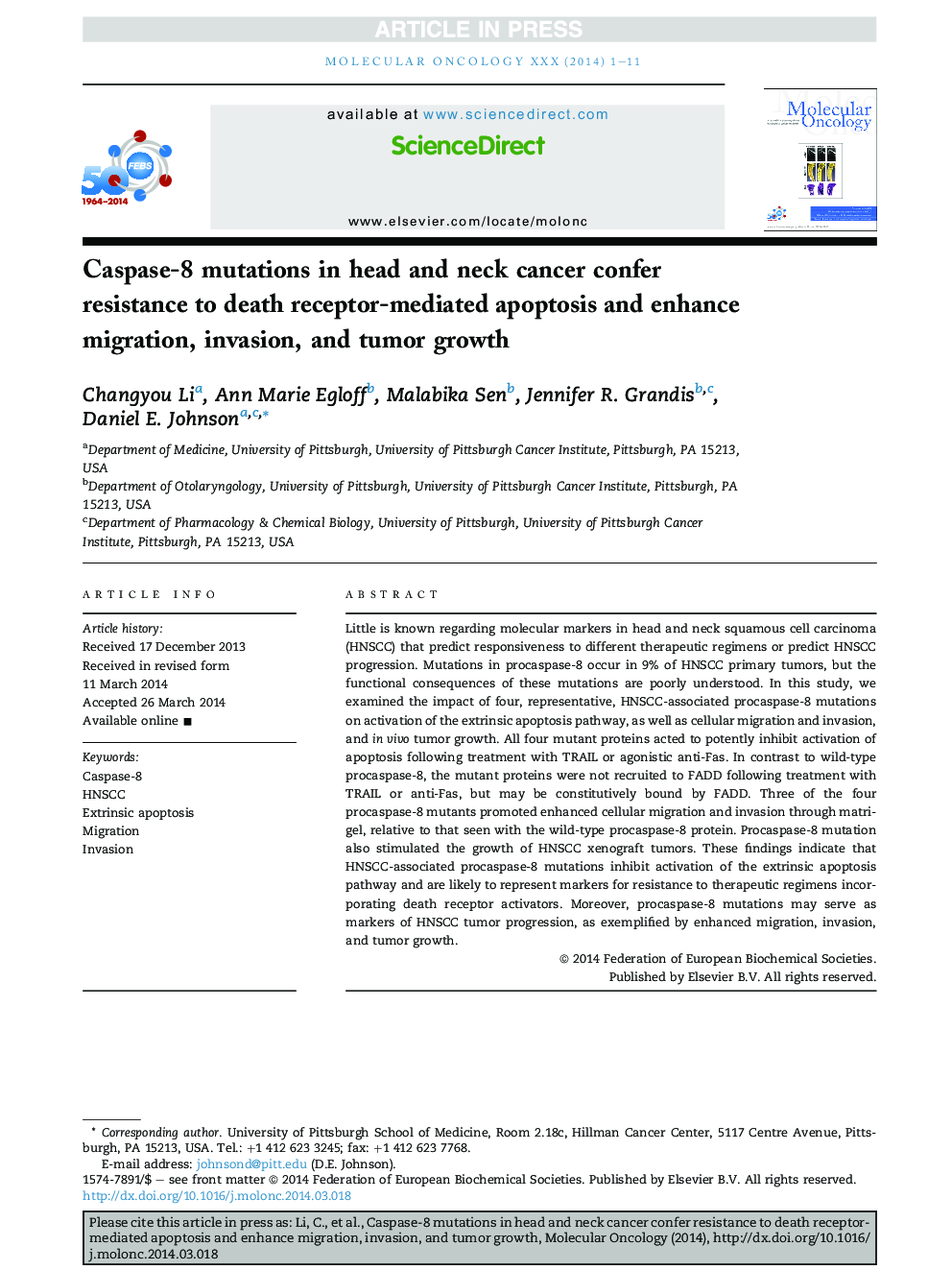| Article ID | Journal | Published Year | Pages | File Type |
|---|---|---|---|---|
| 10914845 | Molecular Oncology | 2014 | 11 Pages |
Abstract
Little is known regarding molecular markers in head and neck squamous cell carcinoma (HNSCC) that predict responsiveness to different therapeutic regimens or predict HNSCC progression. Mutations in procaspase-8 occur in 9% of HNSCC primary tumors, but the functional consequences of these mutations are poorly understood. In this study, we examined the impact of four, representative, HNSCC-associated procaspase-8 mutations on activation of the extrinsic apoptosis pathway, as well as cellular migration and invasion, and in vivo tumor growth. All four mutant proteins acted to potently inhibit activation of apoptosis following treatment with TRAIL or agonistic anti-Fas. In contrast to wild-type procaspase-8, the mutant proteins were not recruited to FADD following treatment with TRAIL or anti-Fas, but may be constitutively bound by FADD. Three of the four procaspase-8 mutants promoted enhanced cellular migration and invasion through matrigel, relative to that seen with the wild-type procaspase-8 protein. Procaspase-8 mutation also stimulated the growth of HNSCC xenograft tumors. These findings indicate that HNSCC-associated procaspase-8 mutations inhibit activation of the extrinsic apoptosis pathway and are likely to represent markers for resistance to therapeutic regimens incorporating death receptor activators. Moreover, procaspase-8 mutations may serve as markers of HNSCC tumor progression, as exemplified by enhanced migration, invasion, and tumor growth.
Related Topics
Life Sciences
Biochemistry, Genetics and Molecular Biology
Cancer Research
Authors
Changyou Li, Ann Marie Egloff, Malabika Sen, Jennifer R. Grandis, Daniel E. Johnson,
